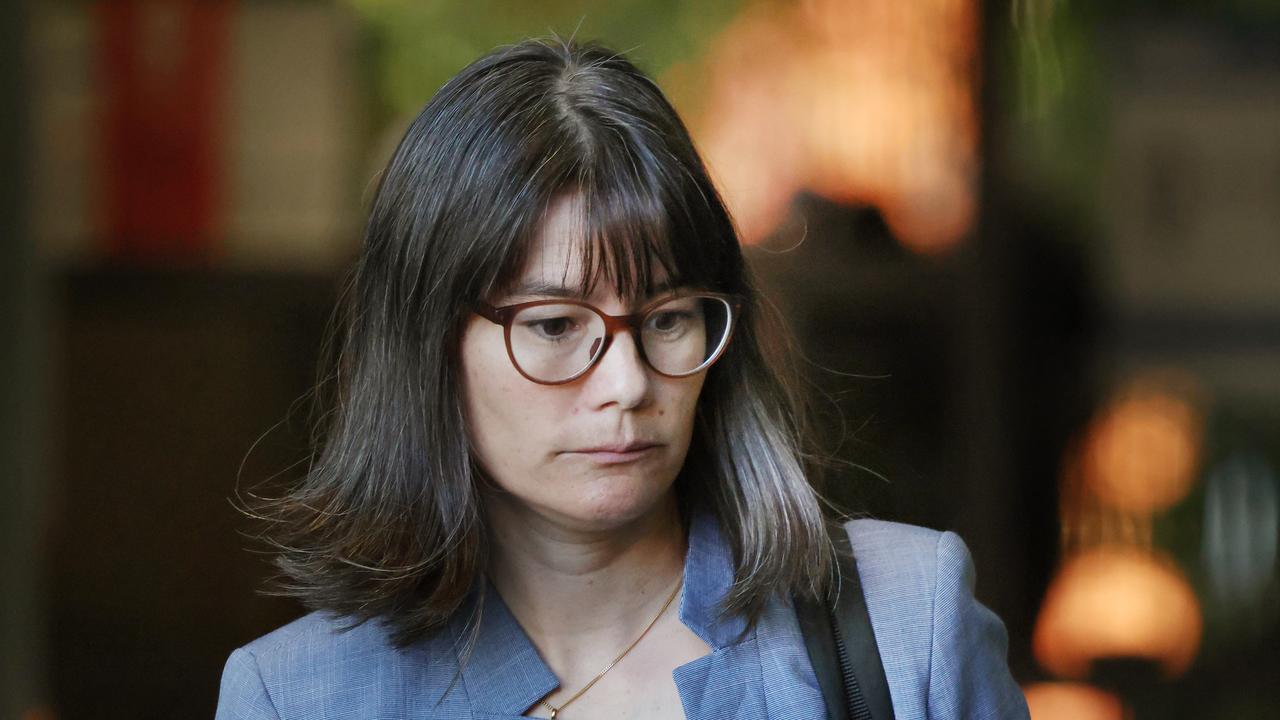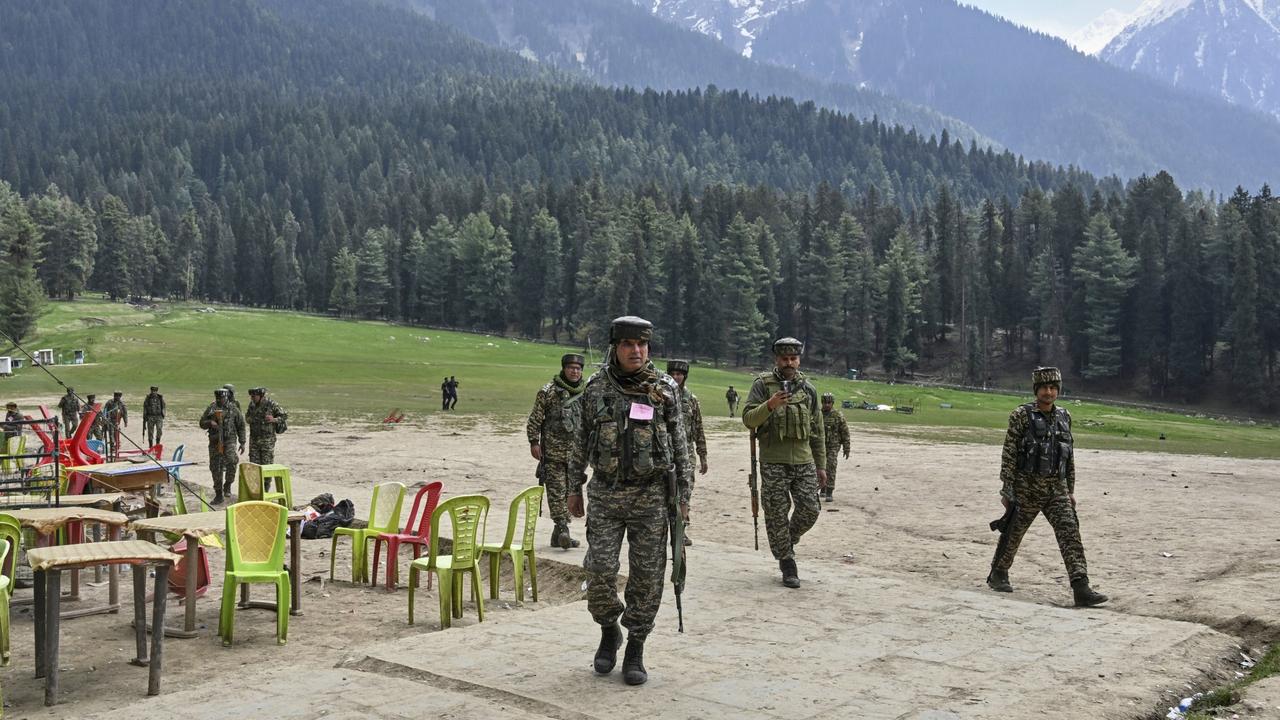Lawyer's own legal ordeal
A LITTLE after 10am, while walking from a gleaming Brisbane Magistrates Court building to his favourite coffee shop yesterday, Peter Russo, criminal defence lawyer and new best friend of Mohamed Haneef, smiled at well-wishers. One sought an autograph. Others approached to say, "Good on you, mate".
A LITTLE after 10am, while walking from a gleaming Brisbane Magistrates Court building to his favourite coffee shop yesterday, Peter Russo, criminal defence lawyer and new best friend of Mohamed Haneef, smiled at well-wishers. One sought an autograph. Others approached to say, "Good on you, mate".
On his best days, according to one of the legal eagles at the cheeky Justinian website for judges and lawyers, Russo "looks like an unmade bed, and on his worst days he appears bewildered".
But yesterday, Russo looked worried. Harassed.
He had just stepped out of Court 40 on the eighth floor of the George Street edifice, where his friend Stephen Keim SC had agreed with a request from Alan MacSporran SC, acting on behalf of the Commonwealth Director of Public Prosecutions, to return at 3pm for a directions hearing.
The media was suggesting the case against Haneef had all but collapsed. Speculation was rampant that Australian Federal Police Commissioner Mick Keelty and the Commonwealth DPP Damian Bugg QC would be wheeled out to take responsibility for a debacle in the fight against terrorism.
But would the police and the DPP really fold their hand and just walk away? Keim hoped with every fibre that they would, finally, do the right thing, and pave the way for a respected Indian-trained medical practitioner to be freed after four weeks of custody. Everything pointed to it. But Keim dared not say so.
As journalists suggested that the case against the Gold Coast Hospital registrar was wobbling, he vented his pessimism. Nope, he revealed, he did not believe there would be a breakthrough. There wouldn't, he was sure, be a happy ending.
"I just have a view that the Crown will amend the charge and we will be back to where we started," he said.
Asked about his most recent contact with the AFP, he said: "They have not softened their resolve to me on anything. (Haneef's) a bit anxious because, as you can imagine, there are more twists and turns in this than the Brisbane River."
The previous night, Thursday, Russo realised he needed to calm down. On the other end of a telephone line from India, a TV interviewer had wanted to know about the Howard Government's handling of the doctor from Bangalore.
"They kept asking me, 'Why has the Immigration Minister (Kevin Andrews) done this?' And I just got a bit angry and I said: 'Don't ask me. Ask the bloody minister who caused all this. I was yelling down the phone.
"My wife (barrister Kerry Mellifont) heard me. She told me it wasn't good form. Last night I said to her, 'I really need this to end so I can get back on with my life'. She is very supportive. She told me it will be over soon."
But you get the impression that Russo, a Catholic, has experienced a powerful and personal journey since he first met Haneef in the days after he was arrested by AFP agents while trying to board a July 2 one-way flight to India.
At that stage the circumstances looked extremely suspicious. The media, public opinion, the police and politicians were going one way. They were against Haneef.
There had been leaks, and grandstanding statements, about a Muslim caught with a one-way ticket. It was just a couple of days after his second cousins allegedly tried to cause destruction in London and Glasgow.
There was damning evidence, we were told: a mobile phone SIM card, the so-called smoking gun. It had been Haneef's before he gave it to one of his allegedly murderous relatives a year ago. There were stories about it being a potential trigger for an explosion, and tales of the internet conversations Haneef had with his relatives before they were arrested in Britain.
It all made fascinating copy, and the footage of the raids by AFP agents added to the sense of drama, the "terror in our midst". It seemed the police really wanted Haneef to be a terrorist. So much money had been spent on the fight. And the rest of us should have felt safer knowing they were on the case.
But by July 13 the cracks started to appear. And Keim worked hard to widen them. As Haneef was held behind bars and treated like a dangerous terrorist instead of a humanitarian with a perfectly good reason to return to India -- his wife, Firdous, had just given birth to their first child -- the prosecution's case started to come under real scrutiny.
After becoming aware of documentation that set out the threadbare case against Haneef, The Australian published it on July13 across the front page. Keelty was deeply annoyed, and Attorney-General Philip Ruddock grumbled that it was more information that he himself had at the time. But nobody challenged its authenticity. The mood against Haneef began to lighten. Just a little.
The next day, Russo sat through a 12-hour questioning session of Haneef. The Queensland Police Service's Adam Simms, on secondment to the AFP's counter-terrorism force, was firm but fair. There were times when Russo was concerned with the line of questioning, but he remained supremely confident his client was innocent.
As Haneef had told police in his first interview, he tried to telephone a British counter-terrorism officer four times on July2 when he realised they might want to talk to him about the SIM card he had given to his second cousin, Sabeel Ahmed.
"The reason I went with the flow with Mohamed during that questioning was because I really believed that at the end, they would let him go," Russo said yesterday. "In one of the breaks I'd even drafted a statement for Mohamed because I was so convinced. He was to have read it out to the press outside."
But in the early morning, Simms broke the news: "We're going to charge him."
"I was upset when they came and told me, and I said, 'You won't mind if I go and tell Mohamed'?" Russo recalled at the coffee shop yesterday.
"I think we do have a close connection. I've been asking him a lot of questions about the Koran, and what his faith means to him. I've learned a lot from him. There are similarities between Christianity and his beliefs. Do you want me to give you a couple of examples? They made a big issue in the police interview about jihad. But his understanding of jihad is that it is just a struggle. It's a life struggle.
"He's right. Life isn't a bed of bloody roses. He says that all blood is human blood, and what he means is that all human life is precious. So what if he hates the war in Iraq? More than half the population agrees.
"He talked to me about revenge in the Koran. He said his belief is something along the lines of: you're offered a higher place in paradise if you forgive than if you take revenge on your enemy. He says forgiveness is paramount. You're a better Muslim if you forgive."
While Haneef has explained his concept of forgiveness to Russo, a craggy-faced battler who admits he prefers "a fight to a feed", Russo has taught Haneef a uniquely Australian word. Bullshit. It is the word Russo uses to describe the evidence, the charge, the police leaks, and the orchestrated build-up of prejudice against the doctor.
"But he doesn't get angry," says Russo. "He is one of those personalities that could drive some people to distraction. I'm really emotive, but with him the whole world is falling down around him and he's not upset.
"He is moved by the fact that people believe in him, and that hiscolleagues at the hospital stood by him."
Russo wandered away from his favourite coffee shop at 11am, stilllooking more worried than bewildered.
As Keim sweated and paced the carpet in Brisbane, Bugg and Keelty put the finishing touches in Canberra to one of the most extraordinary backdowns in the history of the Australian criminal justice system.
The blame game started after 3pm. Yes, announced Bugg, the charge would be dropped. Yes, there had been dreadful mistakes. No, said Keelty, there would be no apology to Haneef.
Their press conference, beamed live into the lawyers' offices in Brisbane, was an unedifying spectacle. A man's reputation trashed, his freedom stripped, his family honour ruined, because he was deemed guilty by association. It had been a disaster from start to finish.
And at the end, in another place yesterday, Ruddock made the most absurd statement in this black comedy of errors.
"I think that what we have seen is that the system worked as was intended," he said.



